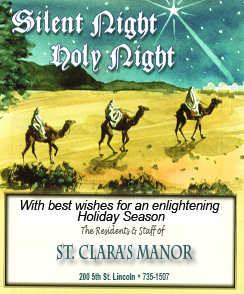| ||||||||||
| ||||||||||
But the outrage after June's disputed presidential election gave him a new voice that resonated with a younger generation. His most pivotal moments came in the summer when he denounced the "despotic" tactics and "crimes" of the ruling clerics
-- a bold step that encouraged protesters to break taboos about criticism of Khomeini's successor, Supreme Leader Khamenei. In demonstrations earlier this month, students shouted "Death to the dictator!" and burned pictures of Khamenei
-- an act that was almost unthinkable just a few months ago. State television made only a passing reference to Monday's funeral and did not broadcast any images. It mentioned, however, that mourners were chanting anti-government slogans. On Sunday, Khamenei praised Montazeri as a respected Islamic scholar, but noted his falling out with Khomeini and other leaders of the revolution. Montazeri's grandson, Nasser Montazeri, said he died in his sleep overnight. The Web site of Iranian state television quoted doctors as saying Montazeri had suffered from asthma and arteriosclerosis, a disease that thickens and hardens arteries. The International Campaign for Human Rights in Iran said one of Montazeri's followers and a government critic, Ahmad Ghabel, was arrested while driving to Qom with his family to attend the funeral. The New York-based group called on the government not to interfere in the commemorations. Another prominent critic, filmmaker Mohammad Nourizad, was arrested on a charge of insulting officials, the state news agency IRNA reported Sunday. Nourizad, once a conservative government supporter, wrote a letter of protest to Khamenei in September urging him to apologize to the nation for the postelection crackdown. Montazeri was one of the leaders of the revolution and he helped draft the nation's new constitution, which was based on a concept called velayat-e faqih, or rule by Islamic jurists. That concept enshrined a political role for Islamic clerics in the new system. But a deep ideological rift soon developed with Khomeini. Montazeri envisioned the Islamic experts as advisers to the government who should not have outright control to rule themselves. He was also among those clerics who believed the power of the supreme leader comes from the people, not from God. Taking an opposing view, Khomeini and his circle of clerics consolidated absolute power.
[Associated
Press;
Copyright 2009 The Associated Press. All rights reserved. This material may not be published, broadcast, rewritten or redistributed.

News | Sports | Business | Rural Review | Teaching & Learning | Home and Family | Tourism | Obituaries
Community |
Perspectives
|
Law & Courts |
Leisure Time
|
Spiritual Life |
Health & Fitness |
Teen Scene
Calendar
|
Letters to the Editor